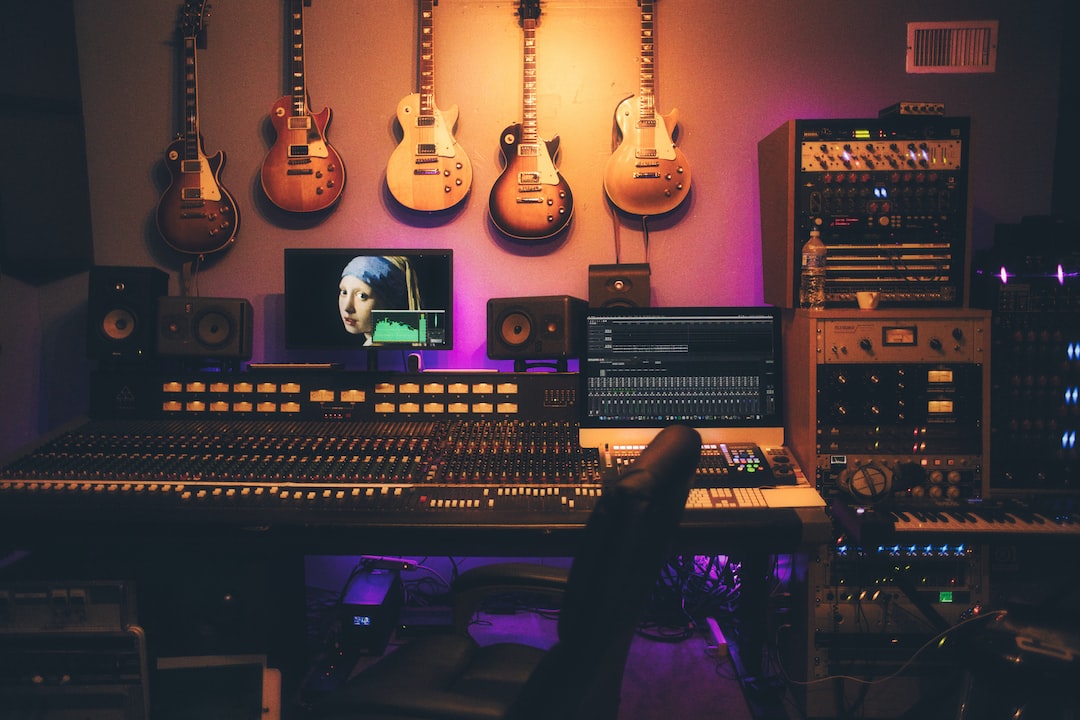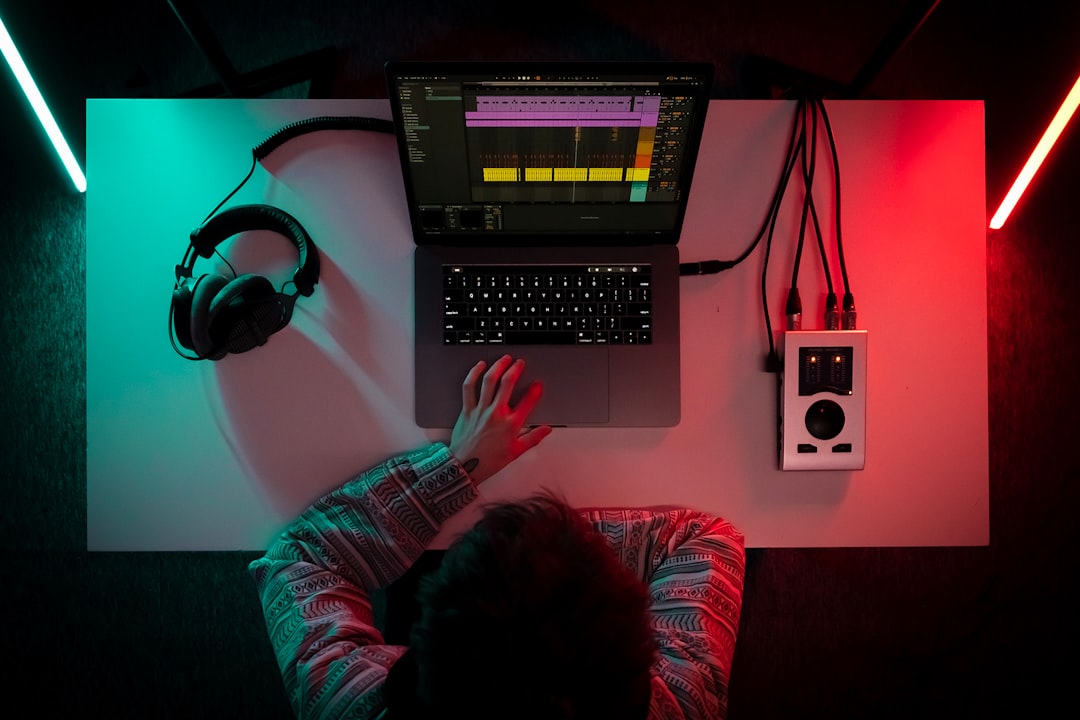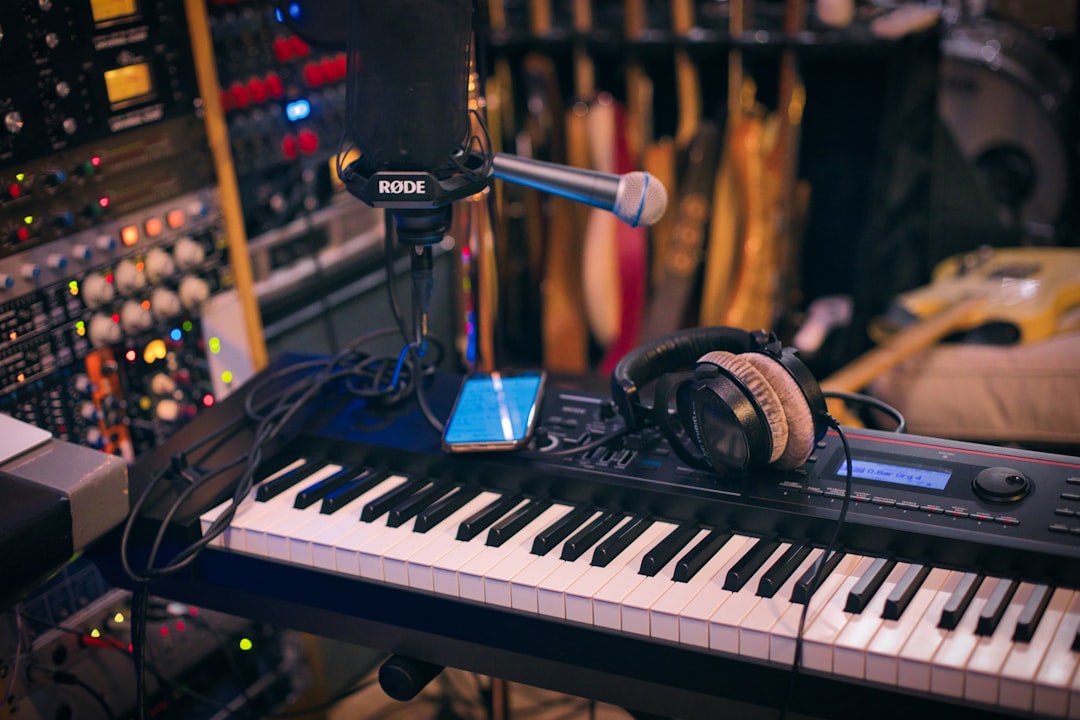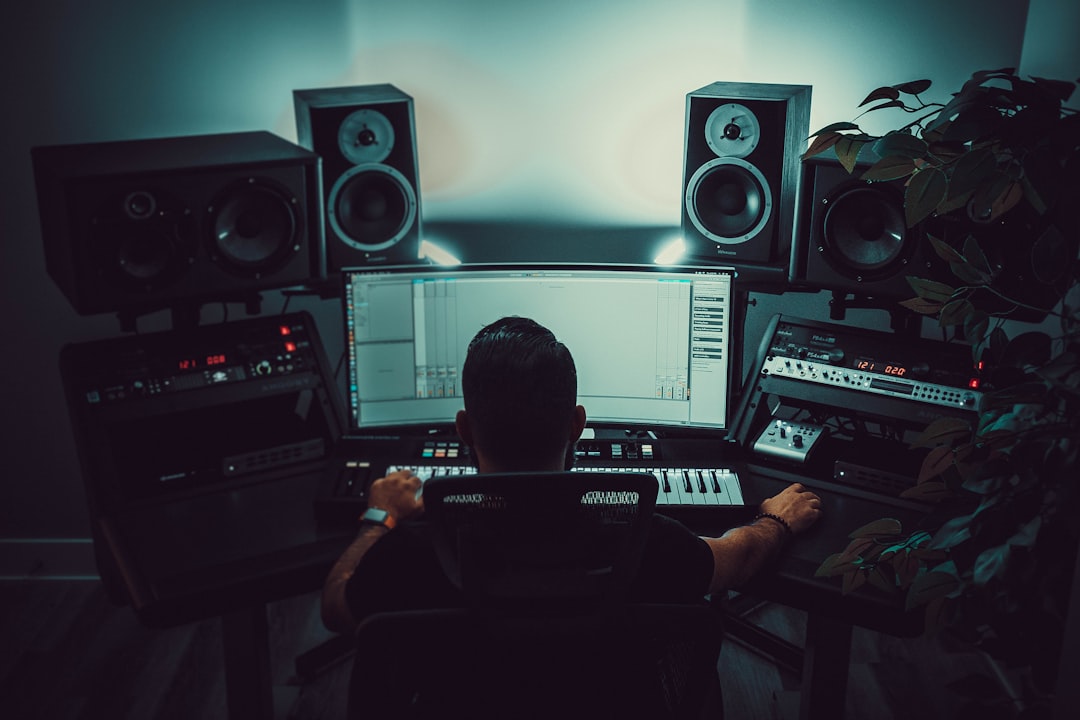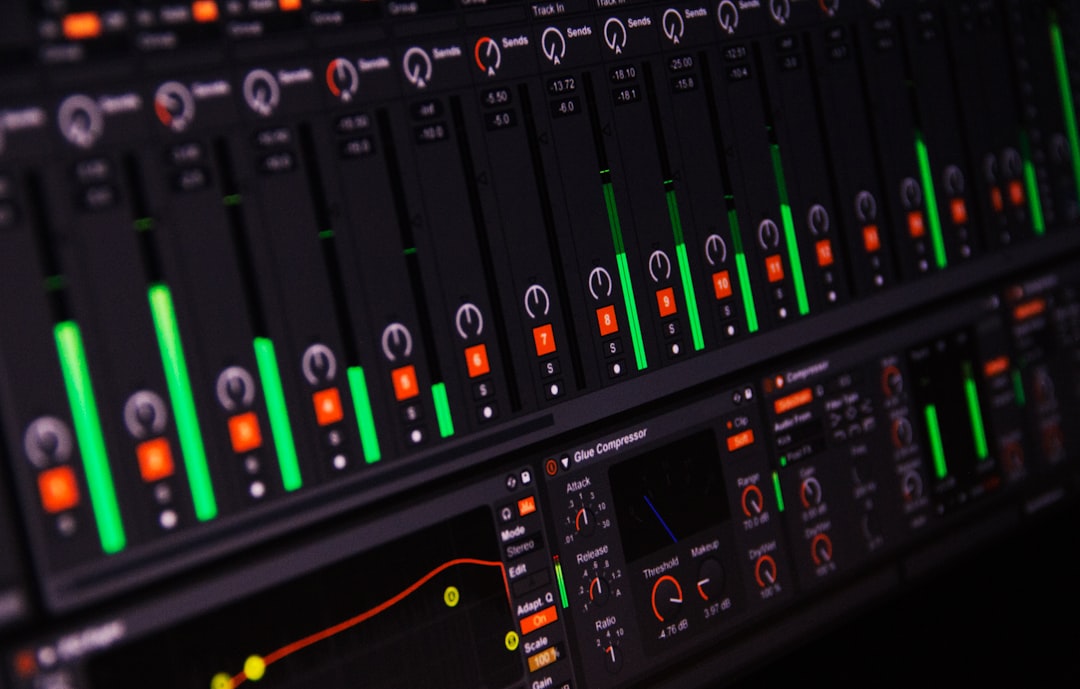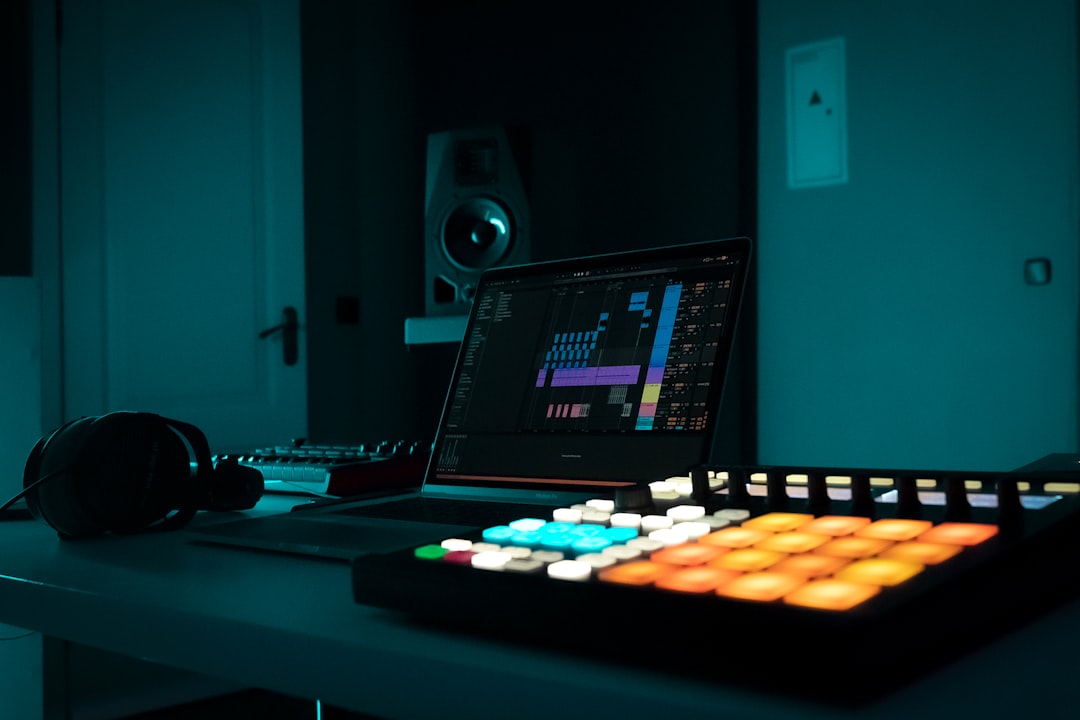As technology continues to advance, we are witnessing a rapid transformation of the music industry. One of the most significant developments in recent years is the emergence of Artificial Intelligence (AI) in music. AI is no longer just a buzzword; it is a reality that has already begun to revolutionize the way music is composed, produced, and consumed.
AI is proving to be a game-changer in the music industry, with endless possibilities for its implementation. From composition and songwriting to music production and mixing, AI is transforming every aspect of the music-making process. In this blog post, we will explore the various ways in which AI is being used in music and the impact it is having on the industry.
As we delve into the world of AI in music, we will explore the benefits and challenges that come with this technology. We will also examine the ethical implications of using AI in music and the potential consequences for the future of the industry. So, buckle up, and let’s explore the exciting world of AI in music.
Composition and Songwriting with AI
The advent of AI technology has revolutionized the way we think about music composition and songwriting. AI algorithms are capable of analyzing vast amounts of musical data, identifying patterns, and creating original compositions that are both unique and compelling.
One of the primary benefits of using AI in music composition is the ability to generate music quickly and efficiently. With the help of AI, composers can now create entire albums in a matter of hours, rather than weeks or months. This not only saves time but also allows for greater creativity and experimentation.
AI-generated music is not limited to a particular genre or style. The algorithms can analyze and learn from a vast range of musical styles and then create original compositions that are inspired by these styles. This allows musicians and producers to explore new genres and create music that is both fresh and innovative.
Moreover, AI technology can also assist in the songwriting process. It can analyze the lyrics and melodies of existing songs and generate new lyrics and melodies that fit the same style and genre. This opens up new possibilities for collaboration between songwriters and AI algorithms, creating a new form of musical expression.
However, there are also concerns about the impact of AI-generated music on the music industry. Some argue that the use of AI in music composition and songwriting could lead to the loss of jobs for human musicians and composers. Others worry that AI-generated music could lack the emotional depth and soulfulness that is often associated with human-created music.
Despite these concerns, there is no doubt that AI technology is transforming the way we think about music composition and songwriting. As the technology continues to evolve, we can expect to see even more exciting developments in this field, opening up new possibilities for musical expression and creativity.
This not only saves time but also allows for greater creativity and experimentation.
AI-Generated Music for Soundtracks and Scores
As the music industry continues to evolve, we are seeing more and more instances of artificial intelligence (AI) being utilized in various aspects of music production. One area where AI is making a significant impact is in the creation of soundtracks and scores for film, television, and video games.
Traditionally, the process of scoring a film or television show involved a composer working closely with the director to create a score that fits the tone and mood of the project. This process can be time-consuming and expensive, as it often requires a full orchestra and multiple recording sessions.
However, with the advent of AI, this process has become much more streamlined. AI algorithms can now analyze a scene and generate a musical score that matches the tempo, mood, and emotional content of the scene. This can save both time and money, as the composer no longer needs to create a score from scratch.
One example of this technology in action is the company AIVA (Artificial Intelligence Virtual Artist). AIVA is an AI-powered composer that can create original scores for films, video games, and other media. The company claims that its technology can create unique, high-quality music in a matter of minutes.
Another example is the AI music platform Amper Music. Amper Music allows users to create custom soundtracks by selecting a genre, mood, and tempo, and then generating a unique score based on those parameters. The platform has been used by companies such as Disney and Coca-Cola to create original music for their advertising campaigns.
While some may argue that AI-generated music lacks the emotional depth and nuance of music created by human composers, it is clear that this technology has the potential to revolutionize the way soundtracks and scores are created. As AI continues to improve and evolve, we may see even more advanced algorithms capable of creating music that rivals that of the greatest human composers.
AI-generated music for soundtracks and scores is a rapidly growing area of the music industry. While it may not replace human composers entirely, it has the potential to save time and money while still creating high-quality music that matches the tone and mood of a particular scene or project. As we move forward, it will be fascinating to see how AI continues to shape the future of music production.
The company claims that its technology can create unique, high-quality music in a matter of minutes.
AI-Powered Music Production and Mixing
As we continue to explore the impact of Artificial Intelligence (AI) on the music industry, we cannot ignore the advancements in AI-powered music production and mixing. These technologies are revolutionizing how music is produced, mixed, and mastered. With AI, music producers and engineers can now achieve a level of precision and efficiency that was previously impossible.
AI-powered music production tools use machine learning algorithms to analyze and identify patterns in audio data. This allows them to detect and isolate individual instrument tracks, vocals, and other audio elements. With this information, AI algorithms can then manipulate and enhance these tracks to create a more polished and professional sound.
One of the most significant benefits of AI-powered music production tools is the ability to automate routine tasks. For example, an AI algorithm can analyze a song’s audio data and automatically adjust the levels and panning of each instrument track. This saves producers and engineers countless hours of manual adjustment and allows them to focus on more creative tasks.
AI-powered mixing tools also offer a level of precision that was previously impossible. These tools use machine learning algorithms to analyze and identify the individual components of a song, such as the vocals, drums, and guitar. With this information, AI algorithms can then adjust the levels, EQ, and compression of each component to create a more balanced and cohesive sound.
But AI-powered music production and mixing tools are not just about automation and precision. They also offer a level of creativity and experimentation that was previously impossible. For example, AI algorithms can analyze a song’s audio data and identify the key and tempo. With this information, AI algorithms can then generate new melodies, chord progressions, and drum patterns that complement the existing song.
AI-powered music production and mixing tools are still in their infancy, but they are already transforming the music industry. As these technologies continue to evolve, we can expect to see even more innovation and creativity in the way music is produced and mixed. The future of music production and mixing is AI-powered, and we are excited to see where this technology takes us next.
This saves producers and engineers countless hours of manual adjustment and allows them to focus on more creative tasks.
AI-Based Music Recommendations and Personalization
As the music industry becomes increasingly saturated with new artists and releases, it can be overwhelming for listeners to discover new music that they truly enjoy. This is where AI-based music recommendations and personalization come in.
With the help of machine learning algorithms, music streaming services like Spotify and Apple Music are able to analyze a user’s listening habits and preferences to generate personalized playlists and recommendations. This not only helps listeners discover new music, but also helps artists gain exposure to new audiences.
AI-powered music recommendations are not limited to just streaming services, however. Music discovery platforms like Pandora and Last.fm also utilize machine learning to generate personalized recommendations based on a user’s listening history and feedback.
In addition to personalized recommendations, AI can also aid in creating customized playlists for specific moods or occasions. For example, Spotify’s “Daily Mix” feature generates a playlist of songs tailored to a user’s listening habits and mood.
But how does AI know what kind of music a user will enjoy? It all comes down to data. By analyzing a user’s listening history, machine learning algorithms can identify patterns and similarities in the music they listen to. This data is then used to generate personalized recommendations and playlists.
While AI-based music recommendations have certainly made discovering new music easier and more convenient, there are also concerns about the potential for algorithmic bias. If the algorithms are only recommending music based on a user’s past listening habits, they may not be exposing them to a diverse range of music genres and styles.
Overall, AI-based music recommendations and personalization have revolutionized the way we discover and consume music. As technology continues to evolve, we can expect to see even more advanced and accurate recommendations in the future.
AI-powered music recommendations are not limited to just streaming services, however.
AI-Powered Music Copyright and Royalties Management
As the music industry continues to evolve, the issue of copyright and royalties management has become more complex. With the rise of digital music platforms, it has become increasingly difficult for artists and rights holders to track and collect royalties. This is where AI comes in.
AI-powered systems can help to streamline the process of copyright and royalties management by tracking and identifying music usage across various platforms. These systems can also help to identify potential copyright infringement, which can save artists and rights holders significant time and money in legal fees.
One example of an AI-powered copyright management system is Soundstr. Soundstr uses AI to identify songs played in public places, such as bars and restaurants, and ensures that the appropriate royalties are paid to the rights holders. This type of system can help to ensure that artists receive fair compensation for their work, even in cases where their music is played without their knowledge or permission.
Another example of AI-powered music copyright management is the use of blockchain technology. Blockchain can be used to create a decentralized database of music rights and ownership information, which can help to ensure that artists are properly compensated for their work. This type of system can also help to eliminate the need for intermediaries, such as record labels and music publishers, which can lead to greater transparency and fairness in the music industry.
Overall, AI-powered music copyright and royalties management has the potential to revolutionize the music industry by providing artists with greater control over their work and ensuring that they are fairly compensated for their contributions. As the music industry continues to evolve, it will be interesting to see how AI is used to address the complex issues surrounding copyright and royalties management.
Blockchain can be used to create a decentralized database of music rights and ownership information, which can help to ensure that artists are properly compensated for their work.
Conclusion: The Future of Music with AI
As we’ve explored in this blog post, the rise of AI in the music industry is not just a passing trend, but a significant shift in how music is composed, produced, and consumed. From AI-generated music for soundtracks and scores to AI-powered music recommendations and personalization, the potential for AI in music is vast and exciting.
While some may fear that AI will replace human creativity in music, it’s important to remember that AI is a tool, not a replacement. It can assist and enhance human creativity, but it cannot replicate the emotional depth and nuance of human expression. The best music will always come from a collaboration between human and machine.
Furthermore, AI has the potential to revolutionize the music industry in terms of efficiency and accessibility. With AI-powered music production and mixing, musicians and producers can create high-quality music faster and at a lower cost. AI-based music copyright and royalties management can also help ensure that artists are fairly compensated for their work.
As with any new technology, there are also concerns and challenges to address. For example, the use of AI in music raises questions about ownership and control. Who owns the rights to AI-generated music? How can we ensure that AI is used ethically and responsibly?
Overall, the future of music with AI is a fascinating and complex topic that will continue to evolve as technology advances. As musicians, producers, and music lovers, it’s important to stay informed and engaged with these developments in order to fully understand and appreciate the potential of AI in music.
